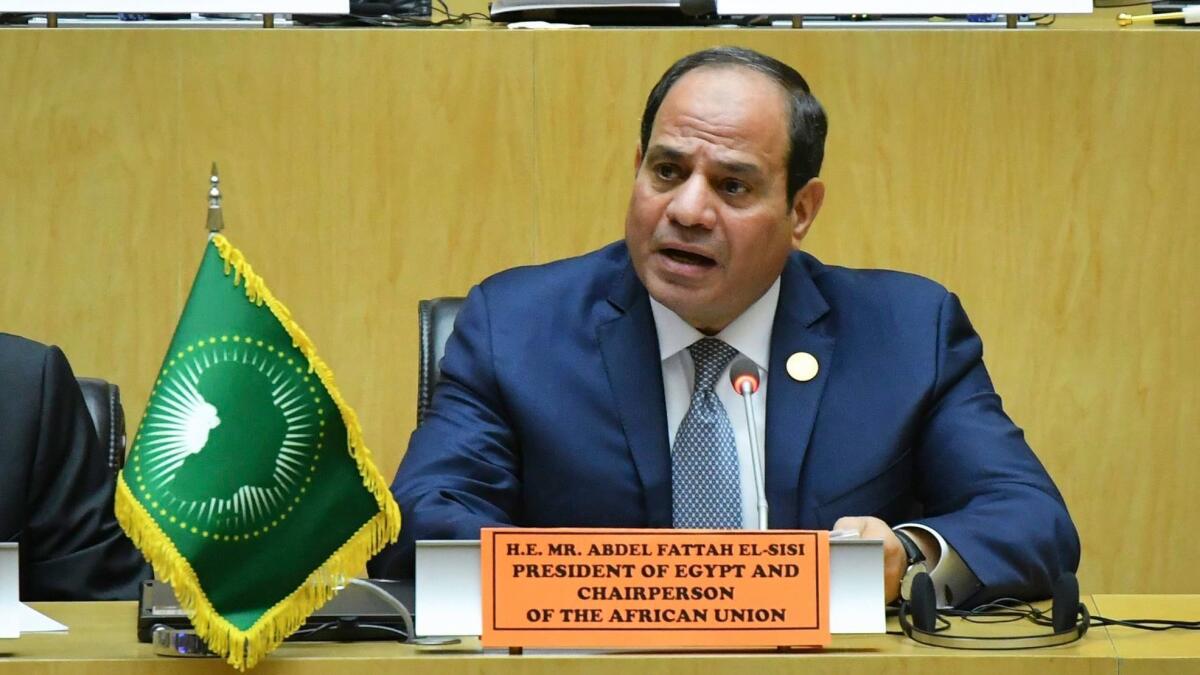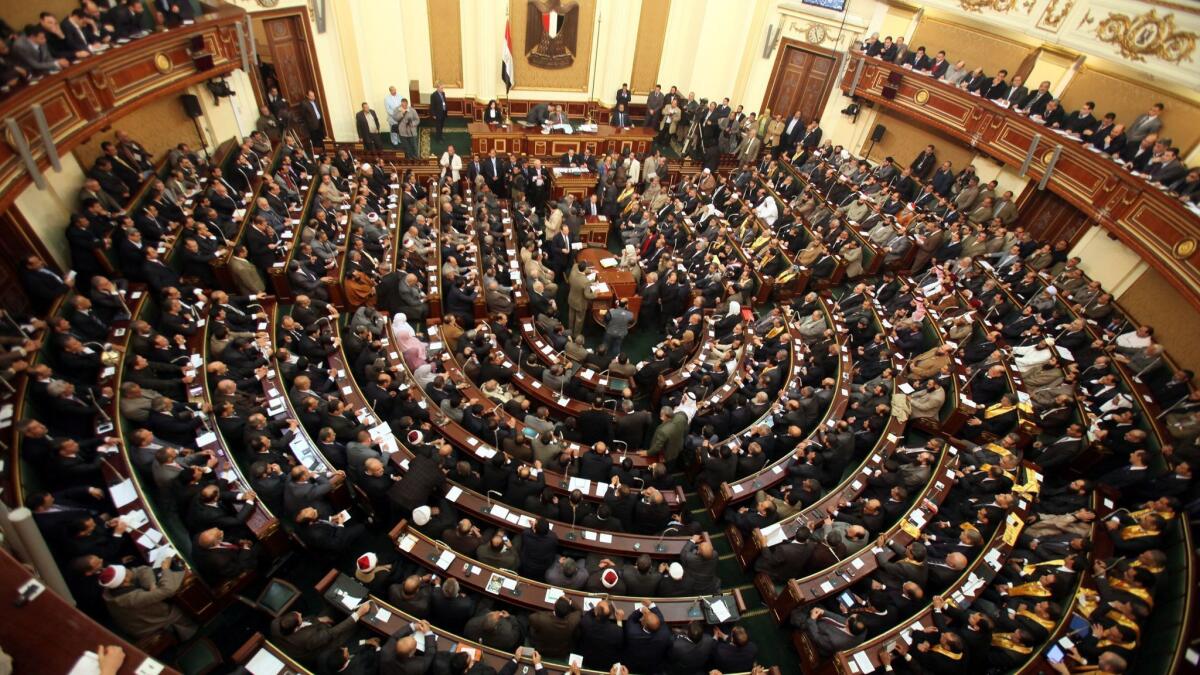A weakened opposition resists push to keep Egypt’s Sisi in power until 2034

Reporting from Cairo — Egypt’s parliament has accelerated its push to adopt constitutional amendments that would give President Abdel Fattah Sisi greater power and could keep him in office until 2034, a move that opposition parties and some lawmakers have vowed to fight, though their chances of success appear slim.
The proposed changes to the 2014 constitution “go against modern democratic principles,” said Talaat Khalil, one of a small group of lawmakers who have publicly rejected the amendments.
The focus, said Mohamed Anwar Sadat, nephew and namesake of the former assassinated president and also leader of the Reform and Development Party, should be on fully implementing the constitution, not changing it.
A parliamentary committee last week hastily approved a broad package of proposals that had been submitted to the speaker just two days earlier while the House of Representatives is expected to cast a provisional vote later this week. Further changes could then be made before the parliament, which is stuffed with Sisi supporters, takes a final vote. It takes a two-thirds vote by the parliament to put the matter to a public vote.
The initiatives would extend presidential terms from four to six years. Though Sisi is due to complete his second and final term in 2022, the proposal would allow him to continue to govern for an additional 12 years.
The proposed constitutional changes would also strengthen the president’s control over the judiciary and firmly embed the military in state affairs by handing it the power to “protect the constitution and democracy.”

For many, the amendments are a clear power grab by Sisi, who led the military overthrow of Egypt’s first democratically elected president, the Muslim Brotherhood’s Mohamed Morsi, a year before becoming president in 2014.
Sisi’s crackdown on activism and dissent has been so fierce that much of his opposition has vanished, and what remains is greatly weakened. Still, some have vowed to resist.
A small parliamentary bloc of leftist lawmakers Monday denounced the proposed amendments, arguing they betrayed the key gains of the Arab Spring uprising in 2011, when the nearly 30-year military dictatorship of Hosni Mubarak was toppled by popular protests.
Khalil, who is a member of the leftist bloc, said that all its 16 members opposed the proposals, though the independent news website Mada Masr has reported some defections.
It’s unclear how many other members of parliament intend to oppose the proposals. At least four other parties with 13 representatives between them in parliament have officially objected to the amendment, though one of the groups is divided.
“There are, for sure, more members who oppose and haven’t come out in opposition yet,” said Khalil. Still, it’s highly unlikely he will get the numbers needed to block the proposals in the 596-seat assembly.
Eleven opposition parties came together last week as the Union to Defend the Constitution to challenge the proposals. The union also includes lawmakers, political and media figures and university professors.

Among other things, the group is exploring whether the amendments can be challenged in court, said Sadat, one of the coalition members.
But with the political machinery and mainstream media firmly under the government’s thumb, some question whether it’s even worth the effort to mount a challenge.
“Political parties are weak and scattered, there are no real politicians,” said Sadat. “Yes this is true, but we should not give up.”
Sadat said it’s no secret that the army is the real power in Egypt and that the judiciary has little independence. “But to have it in the constitution loud and clear, this is too much you know,” he added.
On social media, the Arabic hashtag for “No to constitutional amendments” was trending the day the proposals were introduced in parliament, enabling Egyptians to voice their own opposition. But “for ordinary Egyptians, it seems there is now a great deal of apathy with respect to politics,” said Michael Hanna, an Egypt expert at the Century Foundation, a New York think tank.
“Many have simply vacated the political arena, more concerned with immediate needs and disillusioned with the potential of politics to impact their lives in any positive sense,” he said.
Salma Islam is a special correspondent
More to Read
Sign up for Essential California
The most important California stories and recommendations in your inbox every morning.
You may occasionally receive promotional content from the Los Angeles Times.










